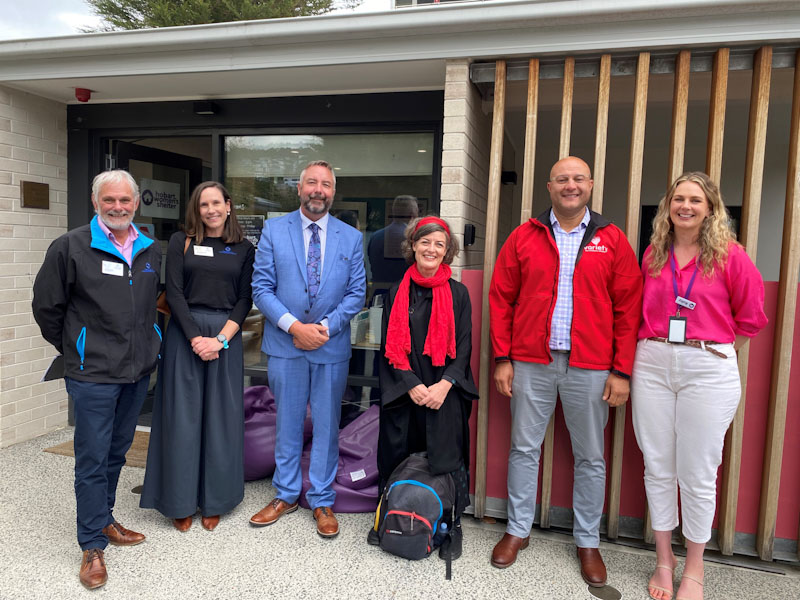Trauma Informed Design will Lead to Better Outcomes

A Tasmanian Community Fund (TCF) grant is pioneering the use of trauma-informed design in the State.
Crisis accommodation service the Hobart Women’s Shelter (HWS) will use trauma informed design to improve the health, social and wellbeing outcomes of women and children who have experienced significant trauma.
HWS Strategic Partnerships Manager Ruby Finlen said the funding is transformative for the Shelter and for the sector more broadly.
“The TCF has very generously supported the embedding of trauma informed design into our communal areas at the Hobart Women’s Shelter through a $180,000 grant,” she said.
“Trauma informed design recognised how the physical environment affects attitude, mood and behaviour, identify, and worthiness and dignity.
“Typically, environments like hospitals and police stations that support people in a trauma state are not trauma informed. They are often clinical and institutionalised with stark white walls and artificial bright lights which does not support a person in a heightened state to feel safe.”
The HWS will use the funding from the TCF to deliver small infrastructural modifications guided by trauma informed design principles such as improved privacy, physical comfort, flexibility, sustainability, and creating a sense of home, to update its therapeutic programs room, recreation room and outdoor and playground area.
“This is such a unique opportunity to be pioneering the importance of design for those who are working with, and those who have experienced trauma,” Ms Finlen said.
“Women and children living in crisis accommodation are at a transitional point in their lives. Many have recently experienced significant trauma and institutionalisation and face considerable uncertainty about the future.
“We want to create spaces that promote safety, well-being and healing for those in a crisis state. To be able to showcase the importance of having the right spaces for people in healing is transformative for the sector.”
Ms Finlen said the demand for emergency accommodation services had skyrocketed in recent years, and women and children are staying longer at the Shelter due to the limited safe exit points available.
“Last financial year 1182 individual women and children reached out to us seeking assistance and we had to turn away 943,” she said.
“The funding will really help to make our spaces more functional, feel brighter, safer, and help create a sense of home for the micro community of women and children we support during a time of stabilisation.
“The quality of space matters enormously for those experiencing trauma and this funding has the opportunity to transform the provision of crisis accommodation in the sector.”
The project is in the design process with work expected to be complete by December 2024.